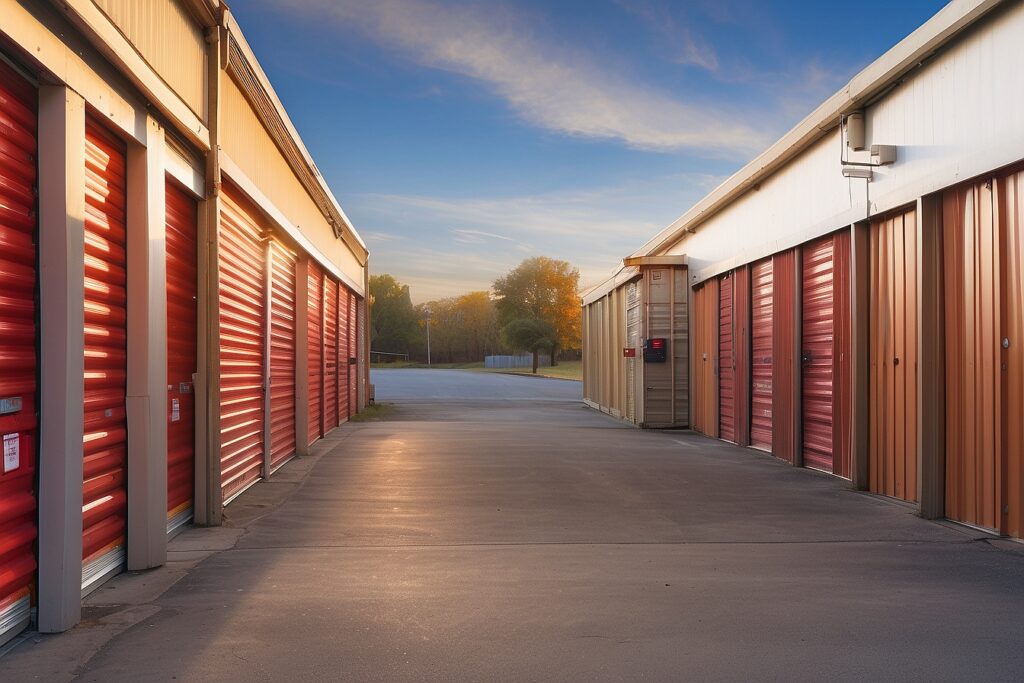In Singapore, StorHub has implemented an online booking system for storage units of various sizes, aiming to streamline the customer experience.
With a yield of approximately 6.6%, the self-storage sector presents an appealing investment opportunity, attracting more entrants into the market.
To establish a distinctive presence in this growing industry, experts underscore the significance of offering value-added services and amenities within their storage facilities.
These additional services may encompass the provision of packing materials for purchase, complimentary usage of trolleys, and the availability of third-party moving services, according to Peter Guevarra, Director of Research Consultancy for Asia Pacific at JLL, a global real estate firm.
Regarding potential amenities that self-storage providers can incorporate, Guevarra suggests a range of options, from meeting rooms and dedicated workspaces to pantry areas and communal breakout spaces.
Additionally, facilities such as packing stations and bookable photography or live-streaming studios can further enhance the customer experience.
StorHub, a key player in the industry, has introduced an online portal as part of its strategy to distinguish itself in the Singapore market.
“A lot of people have become accustomed to making purchases online.
What sets us apart from our competitors in Singapore is the recent introduction of our online portal, allowing customers to conveniently book storage units online,” explained Luigi La Tona, Group Director of Operations at StorHub, in an interview with Singapore Business Review.

Flexibility
Flexibility is a cornerstone of StorHub’s approach to customer service. In addition to providing an online booking option, StorHub ensures round-the-clock access to storage units and offers flexibility in terms of storage duration and unit sizes.
Luigi La Tona, Group Director of Operations at StorHub, highlighted the challenge some customers face when seeking storage spaces in central locations like Toa Payoh and Kallang, where prices tend to be higher. However, by leveraging the vertical space within their storage units, which can reach up to 3.5 meters in height, StorHub can accommodate customers’ needs for smaller units in prime locations.
La Tona explained, “You can take advantage of the high vertical spaces; you can stack your boxes. You can get into our most central properties for great value if you just organize the storage a bit more.”
This strategic use of space allows StorHub to offer cost-effective solutions without compromising on accessibility or convenience for customers.
La Tona revealed that StorHub caters to specific customer needs, such as those of wine collectors, through its specialized wine storage facilities branded as Winebanc.
Currently, StorHub operates three Winebanc facilities situated in Delta House, Toa Payoh, and Kallang. These facilities collectively house over 500 wine cellars and lockers, catering to the discerning needs of wine enthusiasts across Singapore.
Impressively, more than 95% of the Winebanc units are currently occupied, reflecting the strong demand for this specialized storage solution.
In addition to wine storage, StorHub offers a unique service called StorHub Lifestyle, tailored for small business owners, collectors, and hobbyists seeking premium and secure self-storage solutions.
“It boasts enhanced lighting and ambiance, along with a communal lounge area and a smart entry system. StorHub Lifestyle even features a dedicated podcast room for live streaming, catering to individuals focused on growing their collections and businesses,” La Tona explained.
Guevarra emphasized the importance of offering diverse unit types, including both air-conditioned and non-air-conditioned units, to meet specialized storage needs such as wine storage.
He highlighted the significance of providing units in various sizes and price points to accommodate the diverse storage requirements and budgets of customers.
For instance, a 60-square-foot space at StorHub typically costs around $320 (US $236) per month, with the smallest available unit measuring four square feet.
Knowing your customer
Understanding the target demographic is crucial for success in the self-storage industry, emphasized Guevarra. Prospective entrants and investors must carefully assess potential locations before venturing into the market.
“The majority of self-storage facilities in Singapore are concentrated in the Central Planning Region. These facilities are strategically positioned near residential areas and businesses, offering convenient customer access and proximity to public transportation options,” he explained.
This strategic placement is reflected in StorHub’s customer base. La Tona revealed that nearly 70% of their customers reside within a five-kilometer radius of their 18 facilities in Singapore. The majority of StorHub’s clientele are in their thirties, he added.
Beyond individual clients, StorHub serves various business customers, including restaurants, retailers specializing in seasonal merchandise, logistics firms, and enterprises dealing with document storage.
Regarding storage unit sizes, La Tona noted that spaces ranging from 50 to 70 square feet are particularly popular among their clientele.

Risk of Competition
As the self-storage market sees an influx of new players, Guevarra cautioned investors about the potential impact on occupancy rates and rental prices for storage units.
“It’s crucial to evaluate local market competition and distinguish offerings through factors such as location, amenities, pricing, and customer service.
Long-term lease agreements, effective marketing strategies, and maintaining strong customer relationships are also key to attracting and retaining tenants,” Guevarra advised.
He emphasized that maintaining a diverse customer base and offering flexible rental options can aid in sustaining occupancy levels amid market fluctuations.
Despite the possibility of demand fluctuations, Guevarra believes that demand for self-storage spaces will remain relatively stable in the near term.
This stability is attributed to factors like the continued adoption of hybrid work arrangements, home-based learning, the emergence of new hobbies, and the growth of online retail.
“Traditional drivers such as small home sizes, increasing affluence, and the recognition of self-storage as a flexible and cost-effective storage solution will also contribute to sustained demand,” Guevarra added.
From 2020 to 2022, the self-storage sector experienced robust demand, leading to higher occupancy rates and rents.
JLL data indicates that the occupancy rate surged from 67% in 2020 to 81% in 2022, accompanied by an approximately 10% increase in average rents during the same period.




Can you be more specific about the content of your article? After reading it, I still have some doubts. Hope you can help me.
medicine in mexico pharmacies: online mexican pharmacy – buying prescription drugs in mexico online
medicine in mexico pharmacies
https://cmqpharma.com/# reputable mexican pharmacies online
reputable mexican pharmacies online
indian pharmacy: reputable indian online pharmacy – buy prescription drugs from india
https://indiapharmast.com/# top online pharmacy india
best online pharmacies in mexico: mexican rx online – mexican drugstore online
п»їlegitimate online pharmacies india reputable indian pharmacies online shopping pharmacy india
п»їbest mexican online pharmacies: buying from online mexican pharmacy – medicine in mexico pharmacies
best online pharmacies in mexico: medicine in mexico pharmacies – mexico pharmacies prescription drugs
cheap canadian pharmacy online canadian pharmacy online canadian discount pharmacy
medication from mexico pharmacy: buying prescription drugs in mexico – purple pharmacy mexico price list
https://canadapharmast.online/# canadian family pharmacy
indian pharmacies safe: online pharmacy india – online shopping pharmacy india
medication from mexico pharmacy: medication from mexico pharmacy – mexican drugstore online
Online medicine home delivery п»їlegitimate online pharmacies india top 10 pharmacies in india
top online pharmacy india: п»їlegitimate online pharmacies india – pharmacy website india
http://canadapharmast.com/# canadian medications
mexican online pharmacies prescription drugs: mexican drugstore online – п»їbest mexican online pharmacies
india pharmacy mail order: india pharmacy mail order – top 10 online pharmacy in india
mexican pharmaceuticals online medication from mexico pharmacy medicine in mexico pharmacies
buy medicines online in india: top 10 online pharmacy in india – cheapest online pharmacy india
doxycycline hyclate 100 mg cap: doxycycline price comparison – buy doxycycline online 270 tabs
https://amoxildelivery.pro/# amoxicillin 250 mg
http://ciprodelivery.pro/# cipro online no prescription in the usa
generic clomid without insurance: where can i buy clomid for sale – cost cheap clomid no prescription
https://paxloviddelivery.pro/# paxlovid pill
500 mg doxycycline pill: doxycycline 40mg capsules – doxycycline 2984
http://paxloviddelivery.pro/# paxlovid india
https://doxycyclinedelivery.pro/# buy doxycycline over the counter
amoxicillin generic: cost of amoxicillin 875 mg – purchase amoxicillin online without prescription
https://amoxildelivery.pro/# amoxicillin 500 mg tablet
https://doxycyclinedelivery.pro/# doxycycline 50 medicine
paxlovid india: paxlovid generic – paxlovid for sale
https://doxycyclinedelivery.pro/# doxycycline tablets online india
where to buy clomid without a prescription: can i order clomid tablets – cost clomid without a prescription
http://clomiddelivery.pro/# get generic clomid without rx
can you buy cheap clomid: buy cheap clomid prices – clomid pill